|
I haven't felt so intensely and helplessly sad in a long time. I absolutely
cannot accept the fact that Saibal will be snatched away from us so suddenly,
so violently, so prematurely.
"What I am" today is to a large part due to the influences of the friends I have had during my formative years. My "myness" includes my tastes, my outlooks, things that give me happiness, things that hurt me deeply, my philosophy, my resilience against adversity, my capacity to be joyful -- basically my overall existence. As one of my closest friends during the four JU years, Saibal is doubtlessly a permanent component of "What I am" today. We have traveled together every day from Sealdah to Jadavpur, we have sat together day after day, class after class, taking notes, talking among ourselves while listening to professors (SPCs metallurgy "dislocation causes plastic deformation"), we have shared our likes and dislikes, joys and sorrows. We have been to Book Fair together, been to Coffee House, College Street, discussed recently read books, Sunil-Shirshendu-Sanjiv-Narayan Sanyal -- how in the world could it be that he is irreversibly gone? Sukumar Roy's "Abol Tabol" was Saibal's all time favorite book of poems. Same went for me. BibhutiBhushan's "Aronyok" was Saibal's most favorite novel, period. Same went for me. Saibal used to genuinely love nature. He deeply appreciated waking up in the morning by sweet birdsong. He used to pay attention, more than most of us, to the tremble of a delicate flower petal, the fluttering of butterfly wings, to the uplifting influence of the blue sky, to the water droplets on a green leaf, to the magnificence of mountains, to the dignity of great rocks. I have certainly learned from that. Alas, there will be one less observer of these delicate marvels of nature. Both of us adored Kishore Kumar songs. I vividly remember that he wrote for me the lyrics of the legendary song "Chingaree koi bhadkey". I have heard that song perhaps 1000 times after that and I don't think there was one occasion when I didn't think of Saibal. Saibal taught me to appreciate the lyrics of a song. During our daily Sealdah-Jadavpur commute we would be involved in heightened discussion about the beauty and mood of a Kishore Kumar song, which was perhaps broadcasted in the "Geetanjali" radio program earlier in the same morning. I would be emphasizing the voice and the tune, and Saibal the lyrics. It is undoubtedly due to Saibal that I now know what it means when I sing "Jheelo(n)-ke ho(n)tho paar megho(n) ka raag hai/ Phoolo(n) ke siney mei(n) thandi thandi aa(n)g hai". In fact Saibal once beautifully theme-translated this song, among several others, into bengali and one could sing the bengali version in the exact original tune. His translation was, " Jheeler buketey / chandini mukh lukoy/ tho(n)ter khushitey ..." Saibal could do this effortlessly. He will grant my request to translate virtually any hindi song this way and bring in the translation the following day. (See below a theme-translation of another legendary Kishore Kumar song "Mere naina saon bhado..." in Saibal's own handwriting. If you know the original song in Hindi you should be able to sing this Bengali version.) Once I was singing, without caring much about the lyrics, the Kishore Kumar bengali song "Amaar ei bondho ghorey/ Baajey go jey surbahaar" when Saibal angrily snapped at me, "this song you are singing doesn't make sense, how can you sing such meaningless songs... how can a Surbahar (a stringed musical instrument) play in a bondho ghor -- a closed room"? We then went into our favorite discussion of whether the "Spirit" of a song lies in its lyrics or its tune. (Of course we both agreed whatever it was, Kishore Kumar was central to its popularity). Anyway, by his sheer intuition Saibal suggested that the correct version of the song ought to be "Amaar ei KONTHO BHOREY/ Baajey go jey surbahaar" -- and it was indeed correct! Saibal had a natural flair for story-writing. It wouldn't have surprised me a bit to see him emerge as a major fiction writer and it remains a mystery to me why he didn't chose to do so. Saibal and I made two trips together -- both times to Ghatsheela, a charming town on the bank of Subornorekha river in Bihar (Jharkhand now) near the Bengal-Bihar border. Once it was only the two of us, and once additionally with Snehanshu. During this latter trip we also stayed for a couple of days with Khotu and his family in Jamshedpur, and made memorable trips to nearby Dalma Pahar and Dasam falls. In Ghatsheela we used to climb to the top of the Phooldoongri tila and spend long silent hours, often absorbed in our own thoughts. Night would gradually fall and we will watch the stars slowly filling up the darkening sky. Once we noticed some "moving" stars and wondered if they were artificial satellites. I showed him BibhutiBhushan's house, Subarnarekha river, Pancho-pandober Sheela, and the Paglaa-Jhora (a small playful falls) in Raat Mohana. Saibal and I really liked the Raat-Mohana area very much. (Later I induced my father to write a children's novel involving that area "Raat-Mohana'r Rahosyo" -- "The Mystery of Raat Mohana"). We will buy deliciously sweet Ata fruit from the adivashi vendors patiently waiting all day in the street side markets. One day in Ghatsheela, Saibal was in no mood to go out and visit places. So I went out myself. When I returned in the evening I found Saibal happy with a completed story in his hands. A brilliant romantic story based in Ghatsheela. Amusingly he named the main character of that story after me (my nickname, that is). He gave me the manuscript and I was supposed to rewrite it with some corrections. For some reason he never asked for it and I still have that story in the original manuscript. After graduation Saibal wasn't keen in keeping contact with most of our classmates. I have wondered why, but didn't get the chance to personally ask him. Sidhu and I made a trip to his Durgapur residence once in 1992. Unfortunately he was in Calcutta at that time. I respected his desire to give him mental space with the expectation that eventually he will get around and re-establish the old connections. That never happened, and now it is too late. I never thought he could indefinitely live isolated (from our point of view) and often fantasized that perhaps he is practicing and perfecting his writing skills and would one day emerge as a brilliant writer. I wonder if he had been writing during his Durgapur years. Anyway I have hundreds of such memories of Saibal and now those are all that I have. Saibal possessed a rare and unusual personality and uncommon temperament -- perhaps that was why I liked him so much. Now I feel as if a part of myself has been taken away from me. Forever. (Saibal died in a freak car accident on the day of Good Friday in 2004 in Durgapur. I wrote this in May 2004.) |
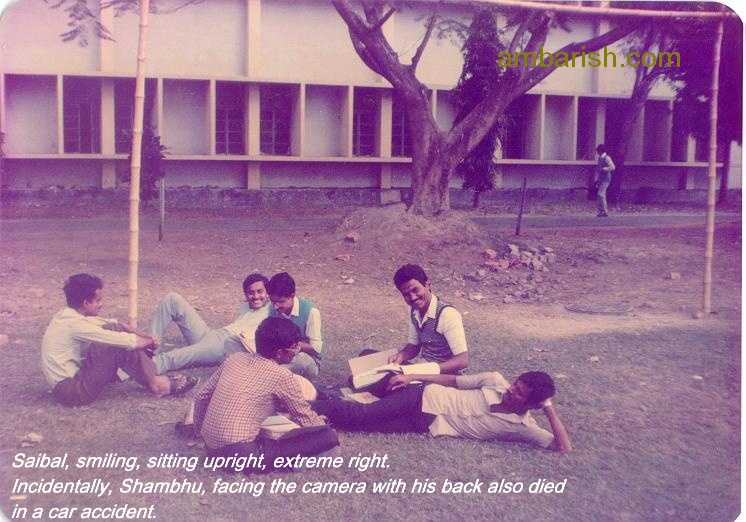
|
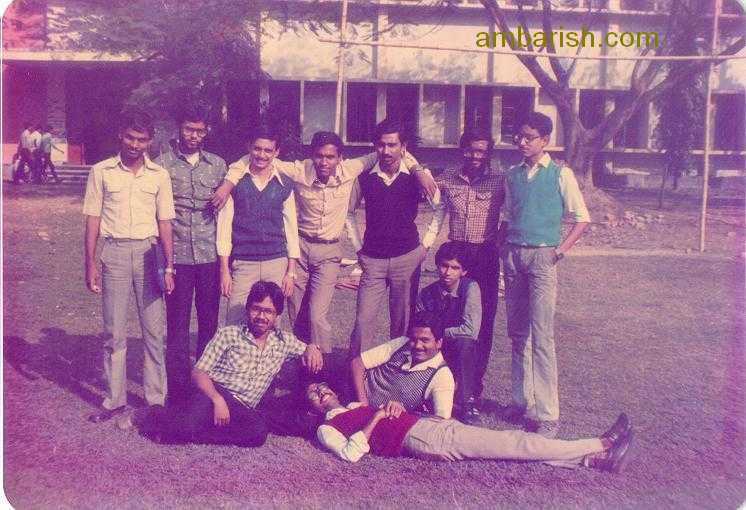
|
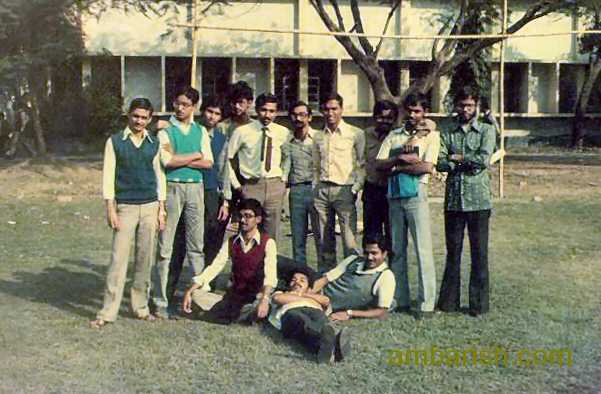
|
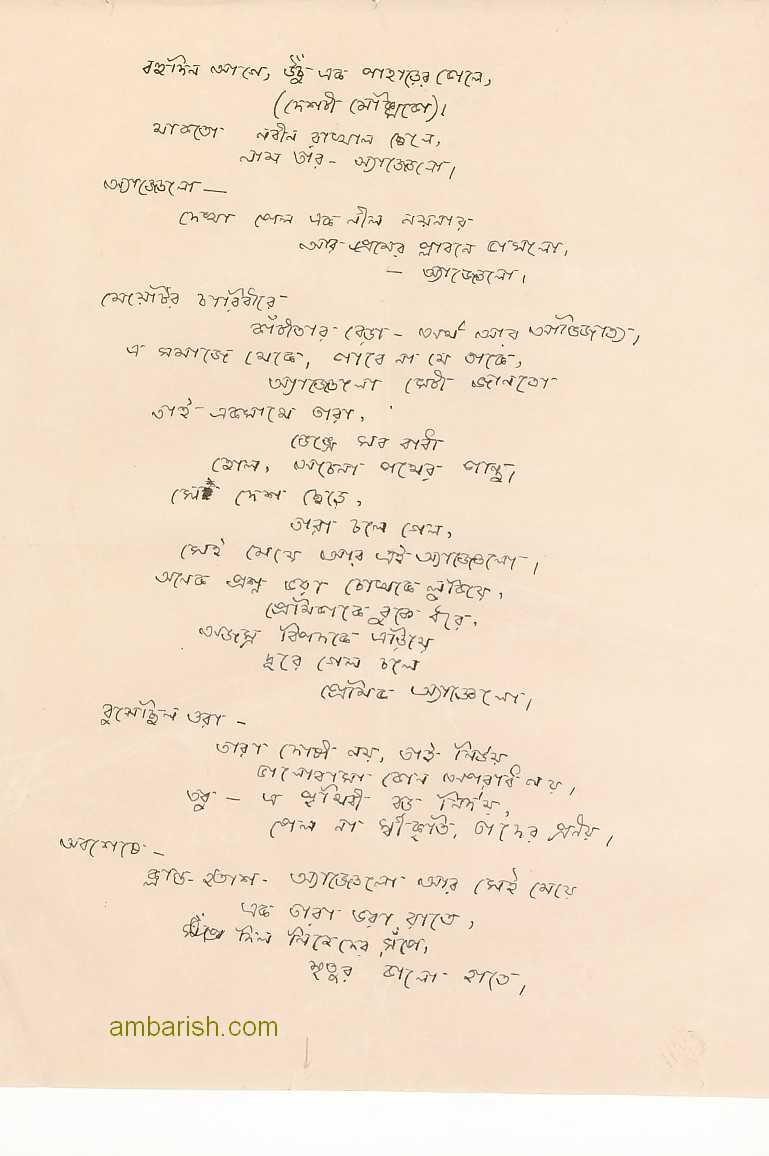
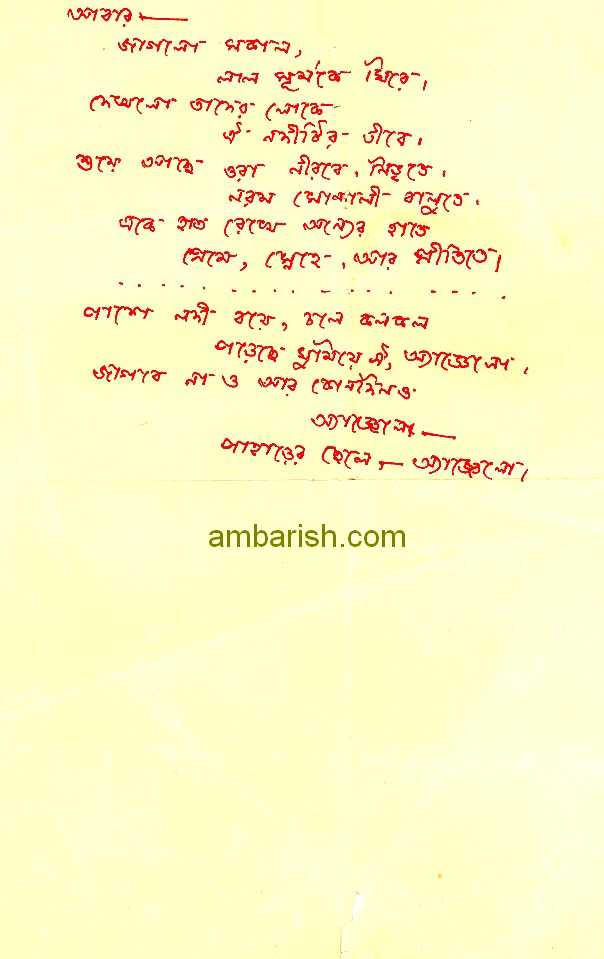
Ambarish Goswami
Last Revised May 25, 2006
Back to main page |